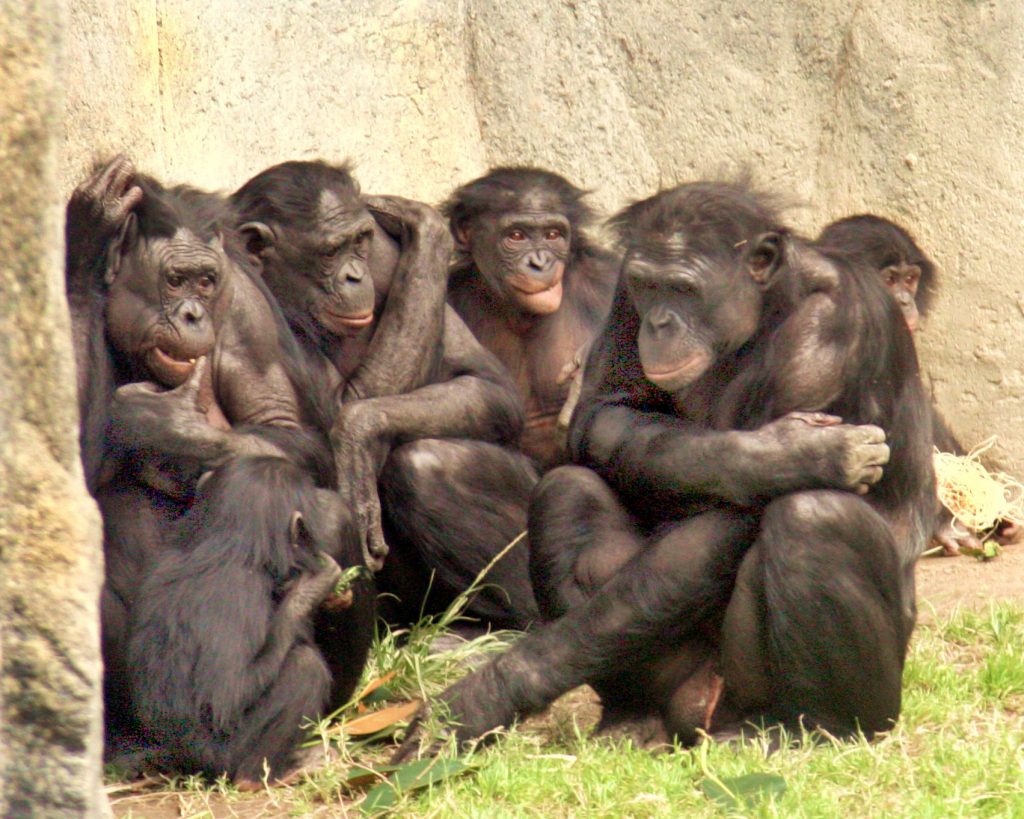There are many threats facing the great apes of Africa, from habitat destruction and fragmentation, to hunting for bush meat. Unfortunately, it is now thought that Chimpanzees gorillas and Bonobos face a still greater threat (assuming humans avoid killing off what remains of their population) the loss of about 94% of their remaining habitat due to forest die off from the warming that we are creating.

Even under our most rosy scenario, they stand to loose 85% of their range.
The same studies suggest that as areas become unsuitable, there are likely to be other that become suitable. Unfortunately, dealing with slow adapting animals this will not help at all without significant assistance from humans.
What is even more scary is that this loss would occur by 2050.
I find this horrifying. I have not been able to yet visit any wild great ape populations, and now it looks as though their future is severely limited. It also looks like, by the time my children have children the huge forests of Africa teeming with wildlife, will be no more.
We must act now!
Human communities which live alongside great ape populations must benefit. Of course these communities must not grow and crowd out the wildlife, but if a similar system can be set up that worked for the mountain gorillas, perhaps many of the great apes could be saved and at the same time, pull millions of Africans living in poverty, into more sustainable and profitable lives.
This is not something that must be left to African governments. Indeed, it also must not be just left to tourism. Governments around the world, need to help in this work.
As well as replanting and recovering rainforests across the globe, the human population as a whole needs to work together to save the remaining tropical rainforests which are so precious to our future and that of our descendants.
A French company Biotope is working on sustainable cohabitation between chimpanzees and local communities in the highlands of western central Guinea.
The west African Chimpanzee once numbered around 2 million. Currently there are roughly 500,000, but without urgent action that number is liable to move quickly down to close to zero.
Conservation for its own sake is all very well for those people living on the other side of the world. For those who live close by it is a different matter. Ending the population explosion that is occurring in Africa, is essential both for the human and wildlife populations that share this continent. Similar programs could do the same thing in south America and Asia.
I am well aware that even if successful, this website will only be part of the solution, but I hope that with your support we can do some good.











